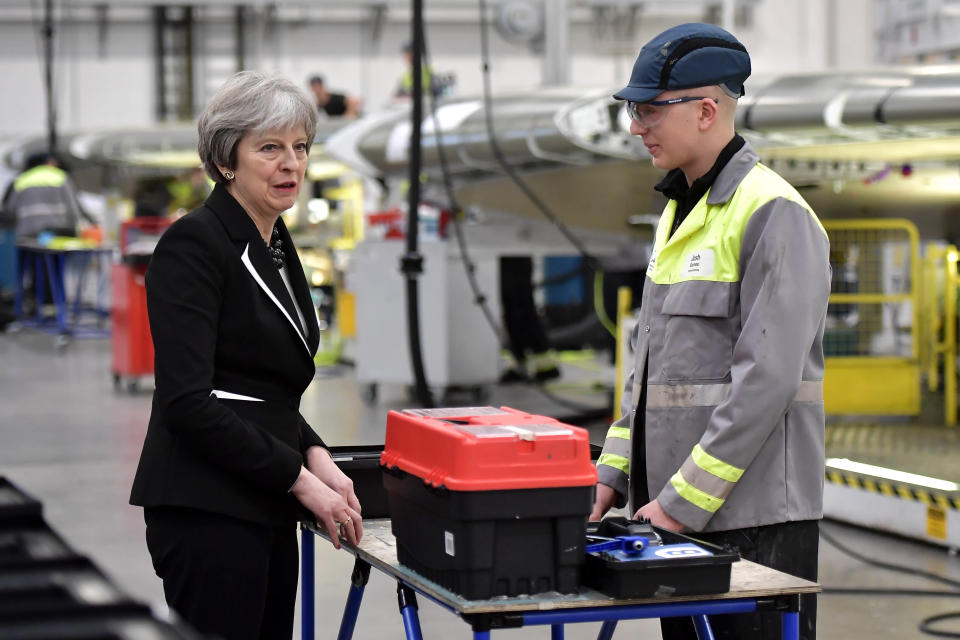UK exports plummet and factories cut jobs after chaotic Brexit delay

Manufacturing in the UK has suffered its worst slump since the 2016 referendum as firms were hit by disruption from a Brexit date that never came in March.
Figures from the latest industry survey released on Monday showed new orders drying up and stockpiling for a potential no-deal exit in March coming to an abrupt end after Brexit was delayed to October.
Export orders plummeted at the steepest rate in almost five years in April as British manufacturing suffered its steepest downturn since July 2016.
The slump marked a sharp contrast to the previous month’s figures, which had been boosted by stockpiling for feared Brexit disruption in the biggest rise in factory output in 20 years.
READ MORE: Manufacturers slam no-deal Brexit as ‘economic lunacy’
It comes as Britain’s biggest manufacturing group also warns industry has been “paralysed” by a cocktail of falling investment, customers ditching Britain and the end of stockpiling.
Stephen Phipson, chief executive of Make UK, said today it would be “the height of economic lunacy” to leave the EU without a deal in October.
Several candidates in the race to replace Theresa May as Conservative leader and UK prime minister have said they would be willing to leave without an agreement with Britain’s biggest trading partner.
The latest IHS Markit/CIPS UK Manufacturing Purchasing Managers' Index (PMI) fell to 49.4 from 53.1 in April, in a much steeper fall than predicted in a Reuters poll.
READ MORE: Trump lands in UK for state visit as Huawei tensions grow
The data company IHS Markit said European firms were diverting supply chains away from Britain, as well as adapting to rising global trade tensions caused largely by US president Donald Trump.
The postponing of Britain’s Brexit deadline to 31 October saw manufacturers put an immediate halt to short-term stockpiling in April, according to IHS Markit.
"New order inflows declined from both domestic and overseas markets, as already high stock levels at manufacturers and their clients led to difficulties in sustaining output levels and getting agreement on new contracts," according to IHS Markit economist Rob Dobson.
"The current manufacturing downturn may have further to run and will have negative ramifications for growth in the broader economy in the months ahead.”
UK factories also slashed jobs for a second month in a row and ran down work backlogs at their fastest rate in six years, according to the survey.
Separate Eurozone figures out on Monday suggest a growing global slowdown is also damaging UK manufacturing, with German and Italian factories also struggling.
“Based on this result, there is the likelihood of more bad news to come,” said Duncan Brock, group director at the Chartered Institute of Procurement & Supply.
He told the Guardian: “Clients from Europe and Asia were particularly reluctant to commit to new business....It has now become obvious that the stockpiling activities of the last few months were propping up the sector’s performance.”

 Yahoo Finance
Yahoo Finance 